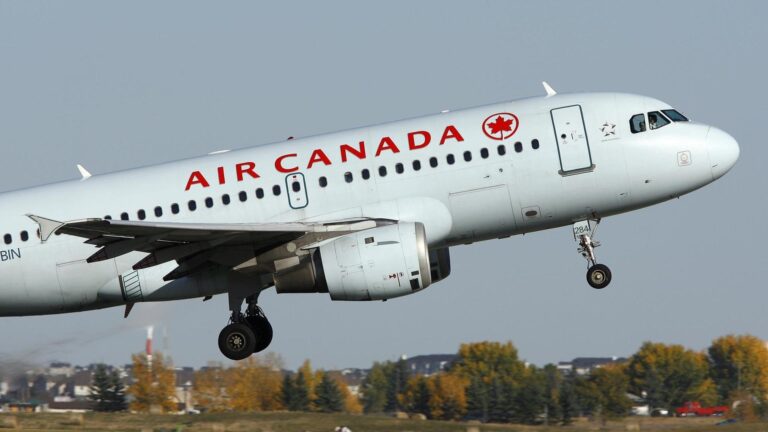Air Canada flight attendants have announced their intention to defy a recent back-to-work order issued amid ongoing labor disputes, signaling a potential escalation in tensions between the airline and its workforce. The move comes as negotiations over contract terms continue to stall, raising concerns about possible disruptions to air travel across Canada. This latest development underscores the challenges facing the airline industry as it grapples with employee demands in a post-pandemic recovery period.
Air Canada Flight Attendants Challenge Government Mandate Amid Labor Dispute
Tensions between Air Canada’s flight attendants and the federal government have escalated as the workers publicly declared their intention to defy the recent back-to-work order. The mandate, issued amid an ongoing labor dispute, seeks to immediately end a strike that has disrupted schedules and travel plans for thousands of passengers nationwide. However, union leaders argue that the government’s intervention undermines collective bargaining rights, intensifying an already volatile standoff. Flight attendants emphasize that their core demands – including improved safety protocols, fair compensation, and better working conditions – remain unresolved.
Industry analysts warn that the unfolding impasse could have significant repercussions. The protracted conflict not only threatens Air Canada’s operational reliability but also raises broader questions about government authority in labor negotiations affecting essential services. Below is a summary of the key points debated during recent negotiations:
| Issue | Flight Attendants’ Position | Government/Air Canada Response |
|---|---|---|
| Wages | Demand significant increases to match inflation | Offer moderate raises with performance incentives |
| Safety | Implement stricter safety measures and staffing levels | Commit to reviews but cite operational limits |
| Work Hours | Seek reduction of mandatory overtime | Maintain current scheduling flexibility |
- Ongoing mediation sessions have yielded little progress.
- Passenger cancellations surge amid uncertainty.
- Political debates intensify over labor rights versus public interest.
Union Leaders Call for Negotiations to Address Worker Safety and Contract Concerns
Union representatives are urging Air Canada management to re-engage in meaningful discussions aimed at resolving ongoing worker safety concerns and outstanding contract negotiations. They emphasize that the current situation reflects deep-rooted issues impacting flight attendants’ well-being and the overall operational environment. The union leaders have highlighted the urgency of addressing these challenges before any formal resolutions can move forward, citing an expectation of transparency and mutual respect in upcoming talks.
Among the key demands presented are:
- Improved safety protocols to mitigate workplace hazards and fatigue
- Clear guidelines for handling COVID-19 exposures and related health risks
- Fair contract terms that reflect the evolving demands of airline service roles
- Binding agreements to prevent future labor disputes and ensure job security
| Issue | Union Position | Company Stance | |||||
|---|---|---|---|---|---|---|---|
| Workplace Safety | Enhanced measures & regular reviews | Incremental improvements promised | |||||
| Contract Duration | 3-year binding agreement | Proposal for 1-year contracts | |||||
| COVID-19 Protocols |
Summary of Union Demands and Company Stance in Contract NegotiationsUnion representatives urge Air Canada management to resume meaningful negotiations to address critical concerns about worker safety and contract terms. They emphasize the importance of transparency and mutual respect, highlighting issues affecting flight attendants’ well-being and working conditions. Key union demands:
Summary Table of Positions | Issue | Union Position | Company Stance | If you want, I can help you complete the table or provide a more detailed analysis. Just let me know! Experts Urge Federal Authorities to Balance Enforcement with Dialogue for Sustainable ResolutionIndustry experts emphasize that an effective response to the escalating tensions between Air Canada flight attendants and federal authorities requires a careful balance between stringent enforcement actions and meaningful dialogue. While back-to-work orders are designed to prevent operational disruptions, critics argue that relying solely on legal mandates risks deepening hostilities and undermining long-term labor relations. Key stakeholders advocate for a multi-faceted approach that includes:
Concluding RemarksAs tensions continue to escalate between Air Canada and its flight attendants, the defiance of the back-to-work order signals a deepening labor dispute with potential disruptions ahead. How this standoff will impact Canada’s flagship carrier-and its millions of passengers-remains to be seen. Stakeholders on all sides are watching closely as negotiations and legal actions unfold in the coming days. |




